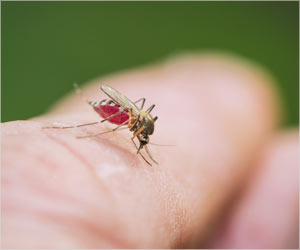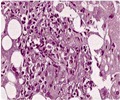Previously undisturbed urban centers have now come under the radar of yellow fever, finds a new study.

‘Less than 25 percent of travelers who departed from areas endemic to yellow fever were not required to provide proof of vaccination upon entry.’





Published in the Bulletin of the World Health Organization, the research does not model a particular outbreak, but rather examines the potential spread for yellow fever virus to spread between the world's cities."Imagine a yellow fever outbreak as a fire," said Dr. Khan, who is a scientist at the Li Ka Shing Knowledge Institute of St. Michael's Hospital. "Embers can fly off in different directions, and if they land in the right place, they can create another fire. We studied the global conduits through which yellow fever virus can spread and the potential for new yellow fever outbreaks to occur in the world's urban areas."
The team of researchers took a global panoramic view of yellow fever virus. They separated the world into three types of places: endemic areas, places where yellow fever virus is established; areas that appear suitable for yellow fever virus transmission but where it has not yet been seen; and non-endemic areas where there is no yellow fever virus and the environment appears unsuitable for it to spread. Yellow fever is spread through the bite of an Aedes aegypti mosquito, which can also transmit viruses such as dengue, chikungunya and Zika.
According to the U.S. Centers for Disease Control and Prevention (CDC), about 15 per cent of people who get yellow fever develop serious illness that can be fatal.
"Yellow fever vaccine is the best protection against yellow fever disease," says Dr. Martin Cetron, head of CDC's Division of Global Migration and Quarantine. "CDC urges anyone traveling to a country where yellow fever is circulating to be vaccinated against yellow fever. Yellow fever vaccine is available at a limited number of clinics in the U.S., and people with some medical conditions shouldn't be vaccinated, so travelers should plan ahead."
Advertisement
"There are different levels of risk depending on where the person is traveling to and where they are coming from," Dr. Khan said. "In today's increasingly connected world, one of the key concerns is that yellow fever virus could be carried by a traveler into a densely populated city that has the environmental conditions necessary to support its transmission, but where the virus has never been seen before. In this setting, the urban population would have essentially have no preexisting immunity to the virus."
Advertisement
- 89 percent of travelers departing from yellow fever-endemic areas to other yellow fever-endemic areas were required to provide proof of vaccination upon entry.
- Less than 35 percent of travelers departing yellow fever-endemic areas for cities that appear suitable for yellow fever virus transmission was required to provide proof of vaccination upon entry.
- Less than 25 percent of travelers who departed from areas of the world where there is no yellow fever virus in areas that are endemic with yellow fever virus were required to provide proof of vaccination upon entry.
- Brazil, China, India, Mexico, Peru and the United States had the highest volumes of travelers arriving from yellow-fever endemic areas and the largest populations living in cities that appear suitable for yellow fever virus transmission.
"Now that we have a global view of how yellow fever virus can travel between the world's cities, countries can reexamine their policies to prevent the importation of yellow fever virus, protect travellers from getting infected with the virus, and in turn prevent its exportation to other parts of the world," Dr. Khan said. "We can't assume that if a yellow fever outbreak has never occurred before in a specific urban area of the world that it will never occur in the future."
In the meantime, Dr. Khan recommends that travelers maintain awareness of the current requirements for yellow fever vaccination and that they have a thoughtful discussion with their physician about whether or not they should receive the yellow fever vaccine before they travel.
Source-Eurekalert













